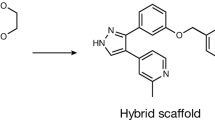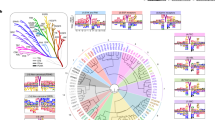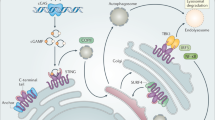Abstract
TRYPSIN inhibitors have been demonstrated in a large variety of biological material, involving, among others, pancreas, milk, egg-white, blood, placenta, urine, skin, gut parasites, beans, peas, potatoes1 and bacteria2. In this communication the presence of trypsin-inhibiting material in the culture supernatants of Clostridium botulinum, types A, B and E, is reported.
This is a preview of subscription content, access via your institution
Access options
Subscribe to this journal
Receive 51 print issues and online access
$199.00 per year
only $3.90 per issue
Buy this article
- Purchase on Springer Link
- Instant access to full article PDF
Prices may be subject to local taxes which are calculated during checkout
Similar content being viewed by others
References
A survey is given in: Kiermeyer, F., and Semper, G., Z. Lebensmittelunters. Forschung, 111, 282 (1960).
Sandvik, O. (personal communication).
Bonventre, P. F., and Kempe, L. L., J. Bacteriol., 79, 18 (1960).
Gordon, M., Fiock, M. A., Yarinsky, A., and Duff, J. T., J. Bacteriol., 74, 533 (1957).
In Northrop, J. H., Kunitz, M., and Herriot, R. M., Crystalline Enzymes, second ed., 310 (1948).
Author information
Authors and Affiliations
Rights and permissions
About this article
Cite this article
HÖYEM, T., SKULBERG, A. Trypsin Inhibitors produced by Clostridium botulinum Cultures. Nature 195, 922–923 (1962). https://doi.org/10.1038/195922a0
Issue Date:
DOI: https://doi.org/10.1038/195922a0
This article is cited by
-
Proteases of Clostridium Botulinum
Acta Veterinaria Scandinavica (1973)
-
Protease inhibitors from Streptomyces violascens
Archiv f�r Mikrobiologie (1973)
-
Protease inhibitors from Streptomyces violascens
Archiv f�r Mikrobiologie (1972)
Comments
By submitting a comment you agree to abide by our Terms and Community Guidelines. If you find something abusive or that does not comply with our terms or guidelines please flag it as inappropriate.



